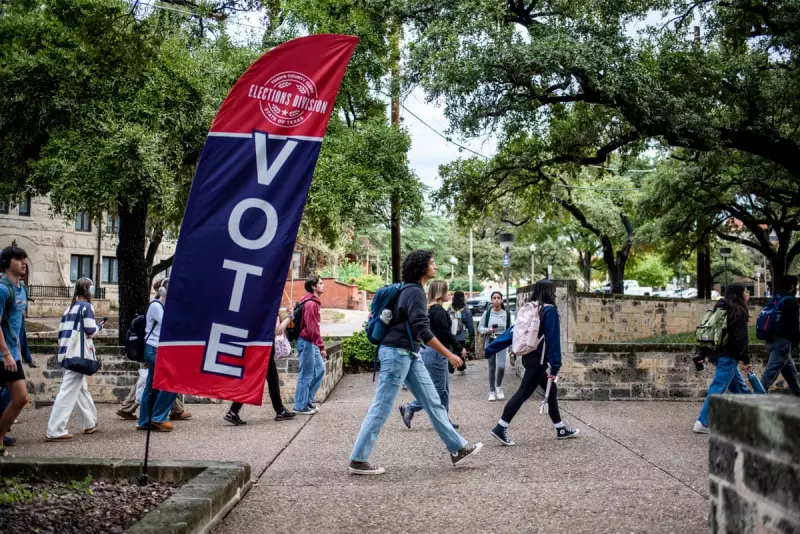
The Democratic Party has launched an unprecedented nationwide voter registration offensive, mobilising activists and volunteers across all 50 states in a critical week-long drive. This urgent initiative comes as official data reveals Republicans have built a substantial lead in new voter registrations, posing a significant threat to Democratic prospects in the upcoming November elections.
Registration Gap Sparks Democratic Alarm
Recent statistics from 42 states show a troubling trend for Democrats: Republicans have outpaced them by approximately 115,000 new registrations since the last presidential election. This deficit has triggered alarm within party headquarters, prompting this coordinated national response to address the registration imbalance before it's too late.
Strategic Targeting of Key Demographics
The week-long blitz focuses heavily on registering young voters, communities of colour, and other demographic groups that traditionally lean Democratic. Party officials are particularly concerned about lagging registration rates among Black and Latino voters compared to previous election cycles.
"We're seeing registration numbers that should terrify every Democrat," acknowledged one party strategist involved in the effort. "This isn't just about enthusiasm—it's about basic electoral mathematics that currently doesn't add up in our favour."
Republican Advantage and Democratic Counter-Strategy
Republicans have maintained their registration advantage through relentless door-to-door campaigning and sophisticated digital outreach efforts. The Democratic response involves:
- Deploying thousands of volunteers for in-person registration events
- Implementing aggressive digital and social media campaigns
- Partnering with community organisations in underrepresented areas
- Utilising celebrity endorsements to boost youth engagement
- Coordinating with state parties to address local registration challenges
High-Stakes Electoral Mathematics
The registration gap could prove decisive in several swing states where elections are often determined by narrow margins. In critical battlegrounds like Pennsylvania, Arizona, and Georgia, even small registration disadvantages can translate into electoral college losses.
Democratic officials acknowledge they're playing catch-up against a Republican apparatus that maintained its field operations while Democrats scaled back during non-election years. The party now faces the challenging task of compressing years of registration work into a concentrated period.
Beyond Registration: The Enthuship Factor
Party insiders note that registration numbers only tell part of the story. Equally concerning are enthusiasm gaps in certain demographic groups and the challenge of converting registrations into actual votes. The drive therefore incorporates elements of voter education and motivation alongside pure registration efforts.
As one organiser noted: "Registering voters is step one. Then we need to ensure they understand the stakes, have a plan to vote, and actually follow through in November."
The success or failure of this intensive week-long effort could significantly influence the electoral landscape, potentially determining control of the White House and Congress for years to come.





